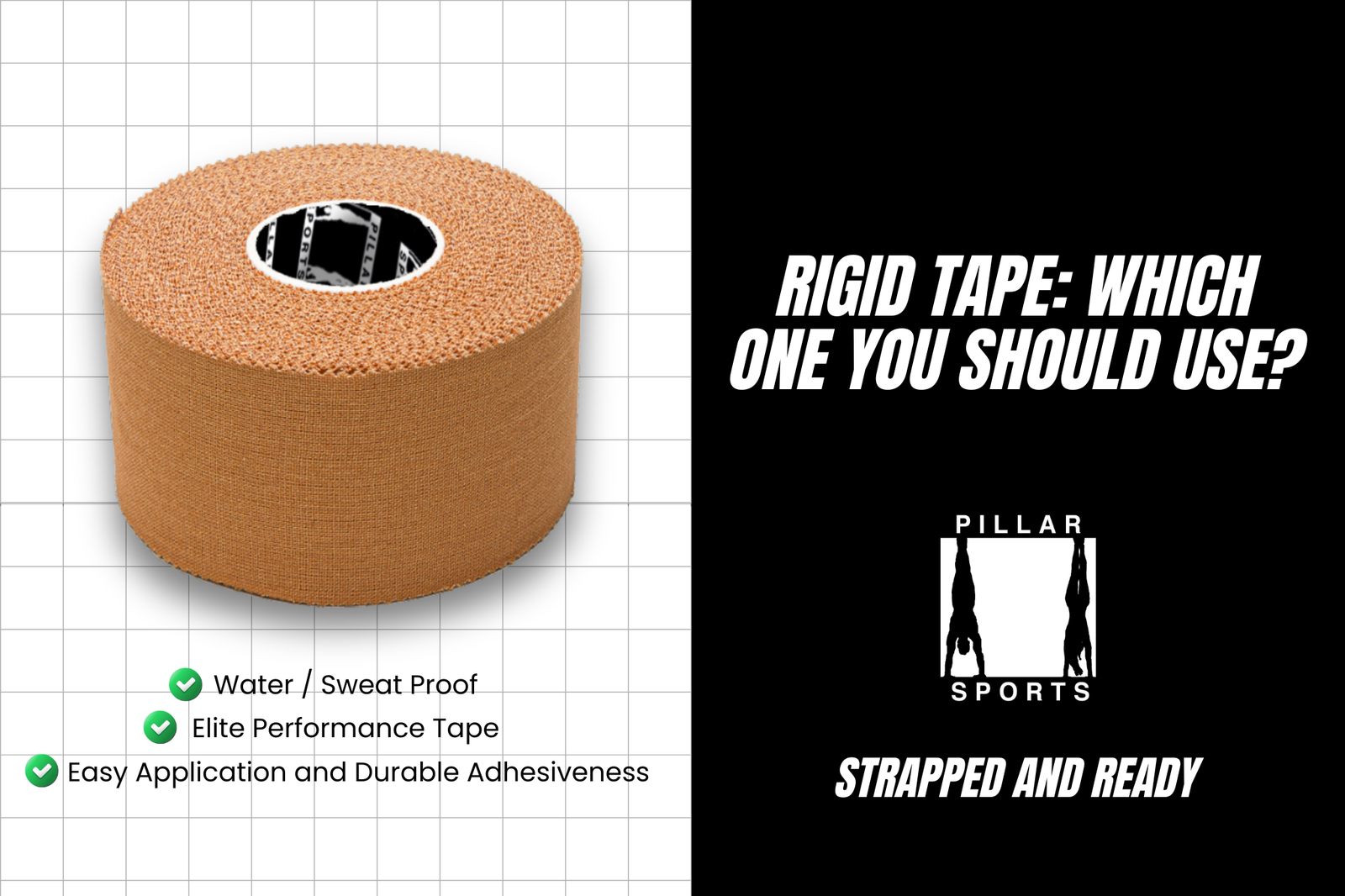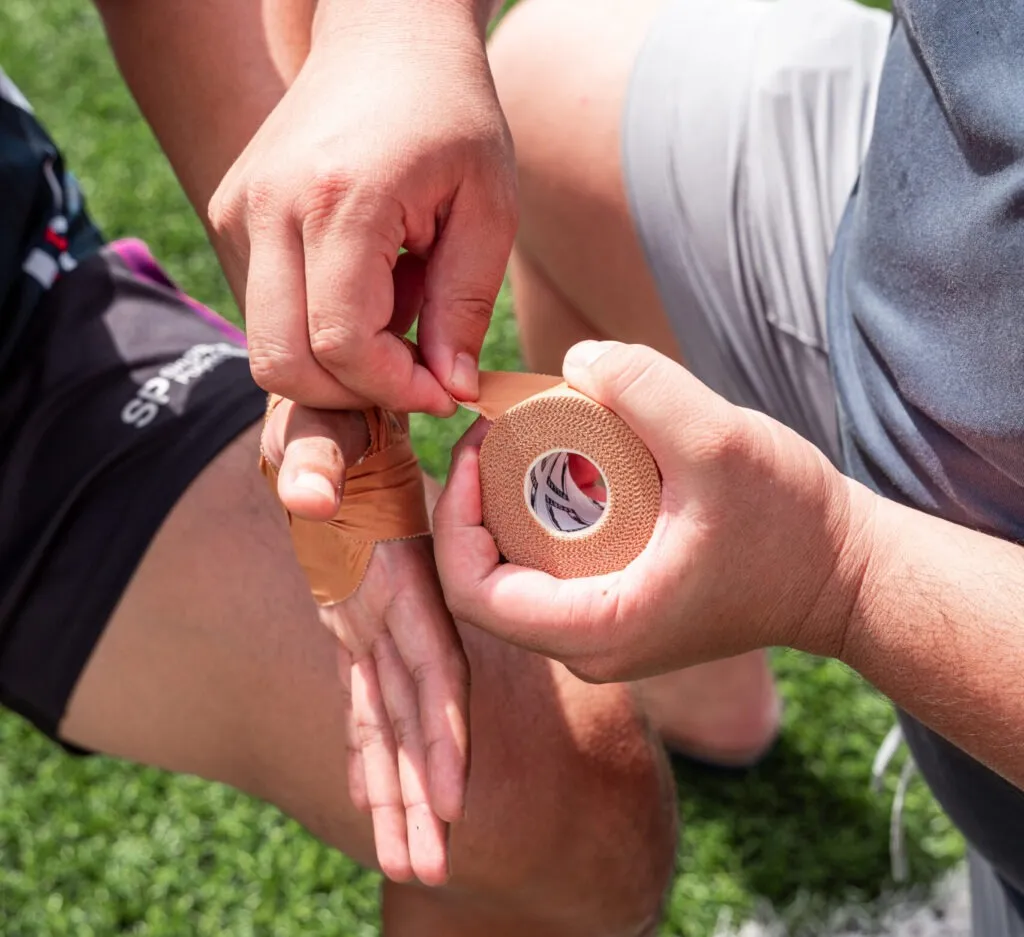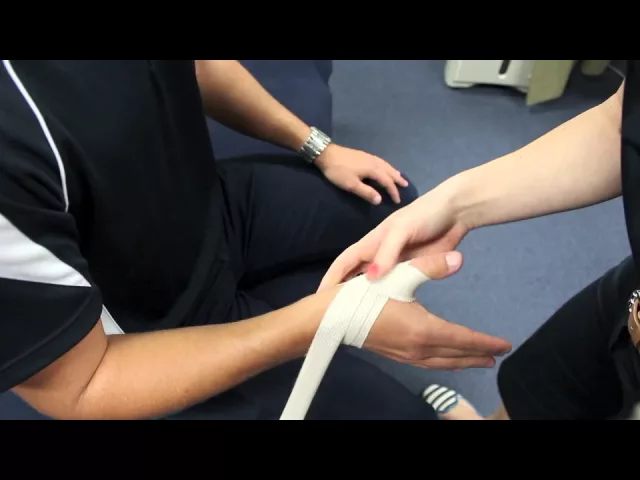
New here? Get HK$20 OFF your first order – min spend HK$300
Please be very aware that this information is neither intended nor implied to be a substitute for professional medical advice. Always seek the advice of your doctor or other qualified health professional before starting any new treatment or with any questions you may have regarding a medical condition.

Athletes using their hands daily for sports like volleyball, climbing, or weightlifting—know how easily the thumb can feel overworked. If you’re learning how to wrap a thumb with KT tape, kinesiology tape offers a soft, flexible alternative to rigid taping, it is perfect for maintaining mobility while giving the thumb mild support or helping manage swelling. This guide covers when KT tape shines, when rigid tape is a better choice, and exactly how to tape a thumb with KT tape using a simple technique.t effectively.
If you also need finger stability during ball-handling sports, check out our guide on finger taping for volleyball, which covers simple techniques to protect your grip and reduce strain.
Jump on the video tutorial on how to tape a thumb using kinesiology tape!
Looking for stronger joint support? For needs like hyperextension prevention or structured stability, visit our Thumb Taping Guide featuring rigid tape techniques.
For light joint support and mobility, kinesiology tape is a great choice.
Explore our range of sports-grade Kinesiology Tapes here — trusted by athletes for training, competition, and recovery.
Thumb injuries like sprains often occur when the ligaments supporting the joint are stretched or torn. According to the American Academy of Orthopaedic Surgeons (AAOS), one of the most common examples is an ulnar collateral ligament (UCL) injury, sometimes called “skier’s thumb” or “gamekeeper’s thumb.”
These injuries usually happen after a sudden force bends the thumb backward or sideways, often during sports like skiing, rugby, or basketball.
Everyday accidents, such as falling onto an outstretched hand or catching the thumb on an object, can also cause sprains.
In these cases, K tape can:
Rigid tape or splints offer greater structural support and should be used when joint stability is critical.
You’ll need high-quality kinesiology tape to get the best results.

If your goal is learning how to wrap a thumb with tape safely, KT tape can offer flexible support that still allows natural thumb movement.
Our Pillar Sports Kinesiology Tape is skin-friendly, water-resistant, and designed to stay put during intense activity. We deliver to Hong Kong and Singapore.
Follow these steps for safe and effective thumb taping:
This method supports motion and joint stability while allowing full dexterity.


Products used in Video: Kinesiology Tape, Elastic Adhesive Tape Non Tearable (optional)
This simple method is ideal if you’re learning how to tape a thumb with KT tape for everyday training, grip-heavy sports, or mild strain support.
If your thumb injury affects adjacent fingers or involves multiple small joints, extend the tape gently over the adjacent finger. This grants wrist and hand support while maintaining grip strength and overall flexibility.
You can also adapt this method if you’re researching how to wrap a thumb with tape for added stability across multiple small joints.
When in doubt, seek guidance from a sports physiotherapist.
| Scenario | K Tape Advantages | Rigid Tape Benefits |
| Athletic training & dexterity | Flexible, breathable support | Powerful stabilization for high demand |
| Managing mild swelling | Supports circulation | Better for fluid retention or major injury |
| Injury prevention during activity | Maintains motion + feedback | Prevents harmful joint positioning |
Use a light anchor strip with no stretch, then apply a support strip around the thumb at about 50% stretch, securing it on the back of the hand. This method keeps mobility while adding mild support.
Rigid tape provides firm structural support, while KT tape offers flexible guidance and light stabilization. Choose based on whether you need mobility or restriction.
Yes. KT tape is easy to apply and forgiving for new users, especially compared to rigid thumb taping which requires more precision.
Kinesiology taping for the thumb is a versatile solution—great for daily use, light support, and mobility retention. Meanwhile, rigid taping remains the go-to for locking down the thumb during heavier activity or injured states. Use with awareness, adjust based on your training needs, and seek professional care when symptoms worsen.
Whether you’re training, competing, or recovering, kinesiology tape can give your thumb the support it needs without sacrificing mobility.
Get your kinesiology tape today and be ready for your next game.

Join 1,000+ athletes already training with Pillar Sports tape.
No spam. Unsubscribe anytime.